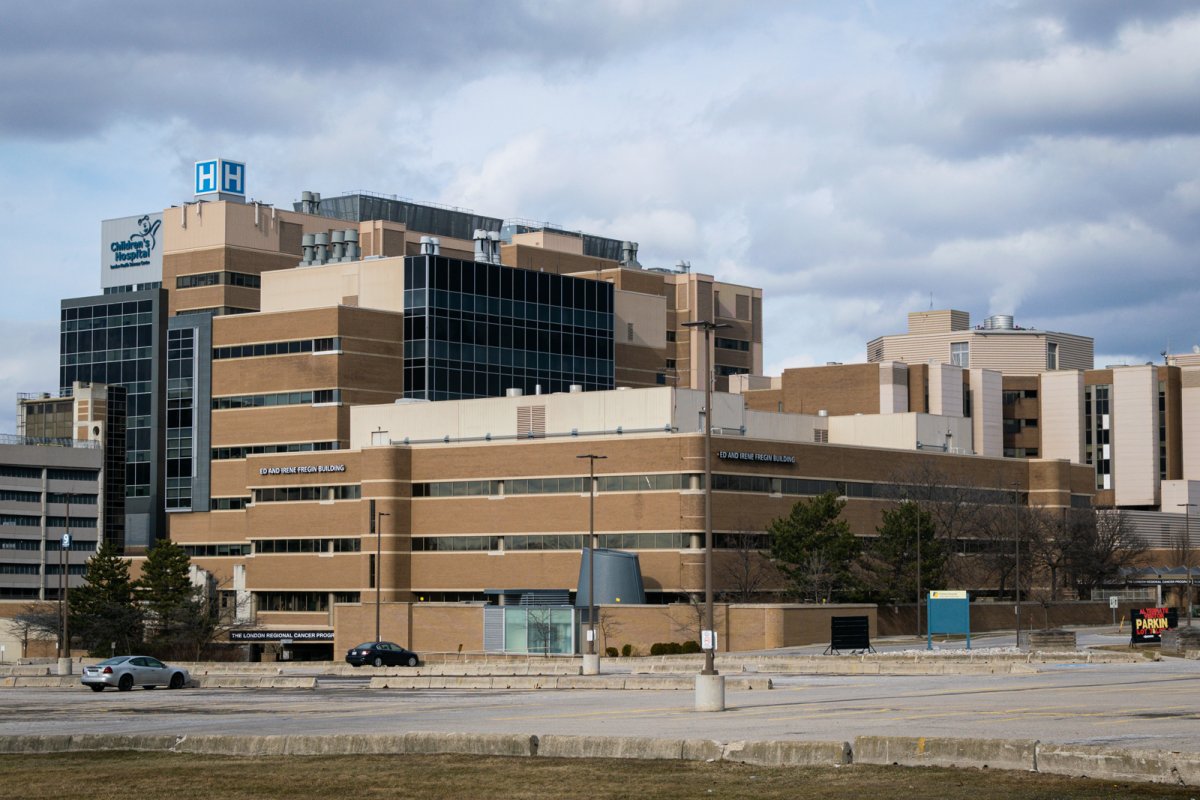A recent $2 million donation in support of London Health Sciences Centre’s (LHSC) hematology program will go a long way in bolstering research and care for those with blood-related diseases and cancers, officials say.

The donation was made anonymously to the London Health Sciences Foundation (LHSF) by a member of the public, they said, inspired by the experience of a family member diagnosed with multiple myeloma, a type of cancer in which abnormal plasma cells can form tumours in one’s bones and bone marrow.
LHSC and LHSF officials announced the donation during a virtual call on Wednesday morning.
“Not only is today’s gift announcement monumental for the hematology program at London Health Sciences Centre, it’s also monumental for patients living with myeloma, as this disease site has never before received the amount of funding we’re here to announce today,” said John MacFarlane, LHSF’s president and CEO.
The funds, he said, would have far-reaching and life-changing implications for those with myeloma, and will ideally improve patient outcomes in the future.
The money will be used to fund the purchase of a mass spectrometer, a device that detects proteins in the blood, allowing for treatment adjustments based on blood biomarkers, officials said. It will also be used to hire a clinical research co-ordinator, who will assist with medical studies and projects alongside Dr. Chai Phua, a hematologist at Victoria Hospital.
Finally, the funding will go toward the hiring of a physician assistant who will lead a pilot study looking at the effectiveness, feasibility and safety of “an intermediate care model among patients that are in the survivorship space from hematologic malignancies,” according to an LHSF release.
- After controversial directive, Quebec now says anglophones have right to English health services
- Something’s fishy: 1 in 5 seafood products are mislabelled, study finds
- Why non-alcoholic beer is gaining steam at Oktoberfest: ‘Nobody will judge you’
- Recall expands for Nutrabolics vegan bars over undeclared milk
In a statement issued by LHSF, the anonymous donor admitted their family had been “generally uninformed” of issues surrounding multiple myeloma before their family member was diagnosed.

Get weekly health news
The donor said they reached out to Dr. Phua to see “how we could help advance multiple myeloma research in a meaningful way.”
“The team of doctors — Phua, (Matthew) Nichols and (Vipin) Bhayana, together with Pamela Taylor — made an impressive donor proposal to fund a new piece of technology that would significantly advance the detection of cancer in blood samples, and also fund the cost of additional personnel for research and patient care,” said the donor’s statement, read aloud by MacFarlane.
“The technology piece resonated strongly with us as technology has been a major focus in our business ventures, and we have seen firsthand the power of technology to transform an organization’s effectiveness.”
Roughly 10 Canadians are diagnosed with multiple myeloma every day, and while there is currently no cure, treatments have improved significantly, said Dr. Ian Chin-Yee, program head of laboratory medicine at LHSC.
“When I first started treating these patients, the average survival was one to two years, and over the past 30 years, we’ve now extended the average survival to eight to 10 years. But patients still die from myeloma,” he said during the virtual call.
Myeloma is the second-fastest rising cancer in the country behind melanoma, he noted.
“As treatments have gotten better, we’ve been able to produce deeper and better responses, and with those developments, we required better tools for monitoring the cancer.
“That’s why this generous gift is so important to us, because this mass spectrometer allows us to measure the patient’s disease at levels that we could never before.”
According to LHSC officials, there are approximately 200 to 300 active myeloma patients who will receive testing with the spectrometer to establish their minimal residual disease, or MRD — the small number of cancer cells that are left in the body after treatment.
Currently, MRD is obtained using a bone marrow sample, whereas the new spectrometer will be able to establish MRD with a simple blood draw, Dr. Phua says.
As many as 500 patients with myeloma and other hematologic cancers could benefit from the device, which will be located at Victoria Hospital, according to LHSC officials.
“To the best of our knowledge, LHSC would be the first hospital clinical lab to try and measure m-protein testing through high-resolution mass spectrometry in Canada,” they said.
— With files from The Canadian Press












Comments